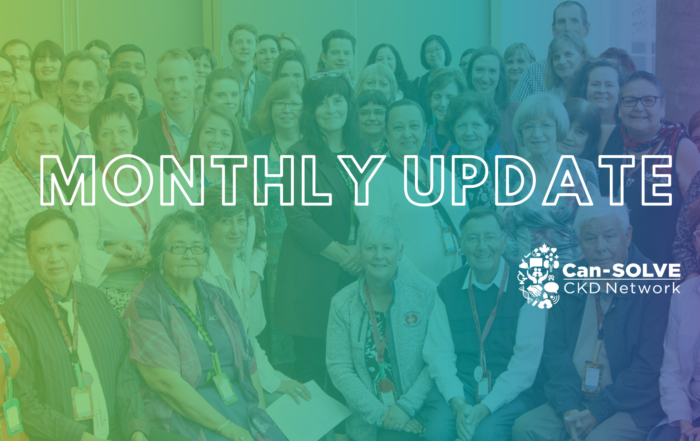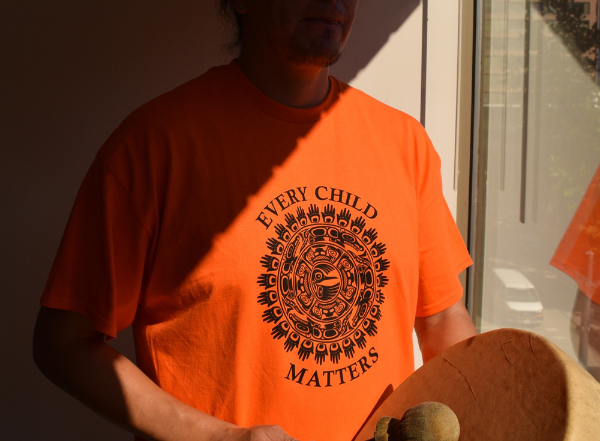
Knowledge Keepers, also known as Elders, are people in Indigenous communities who hold valuable knowledge about their culture and ways of being. This includes ways of healing – physically, mentally, emotionally and spiritually.
At Can-SOLVE CKD, our Indigenous leaders, as part of the Indigenous Peoples’ Engagement and Research Council (IPERC), are working with Knowledge Keepers to apply this valuable way of knowing, being and healing within the network, and beyond.
In October 2019, the network hosted a gathering with Knowledge Keepers from across Canada, including two from British Columbia, one from Alberta, two from Saskatchewan, two from Manitoba, one from Ontario and one from Quebec. From interviews with the Knowledge Keepers, a narrative was created. Can-SOLVE CKD is now is the process of publishing this work in a booklet, which anyone can use to learn more about Indigenous ways of knowing, being and healing. The booklet and its lessons will also form one module of the Wabishki Bizhiko Skaanj Learning Pathway, a new resource developed by Can-SOLVE CKD to foster respectful relationships between health researchers and Indigenous peoples.
More recently, IPERC Coordinator Craig Settee sat down with two Knowledge Keepers on our podcast Kidney Research Conversations to learn more about why they chose to participate in creating the booklet and sharing their knowledge with the network.
Latash Nahanee is a Knowledge Keeper from the Squamish Nation. In the podcast, he shares his personal account of using both Western medicine and traditional approaches to healing. “We have so much to offer, as Knowledge Keepers, that we can bring to the medical field that will truly help our people heal physically, mentally, emotionally and importantly spiritually,” he emphasizes.
Dr. Mary Wilson, a Knowledge Keeper living in Winnipeg, also sat down with us for the podcast. As a Knowledge Keeper, she sees traditional ways of healing as critical for Indigenous people, especially for those who may have lost some – or all – aspects of their culture after surviving residential schools.
She says, “It’s extremely important to bring those teachings back to our young people, so they have the understanding of how important it is to take care of our Mother Earth. Because without her, we have nothing.”
The gathering and subsequent booklet will help pass valuable knowledge on to future generations, but also proved to be an important experience for the Knowledge Keepers themselves. Latash says, “It was just such a great experience in being with all of the Elders and Knowledge Keepers, learning from them. That’s why I take part in these gatherings, so that we can continually keep the culture alive and keep our culture strong.”
Mary says, “What I’d love to see before my days are done is to see people taking care of each other and of the Earth, and I think that this work is a place to start and to really embrace some of the teachings. Because when we talk about the teachings from the original people from Turtle Island, there’s this incredible wisdom and fun, and joy and enlightenment and connectedness. So I look forward to seeing that light in the eyes of people when we greet each other.”




Connect with us